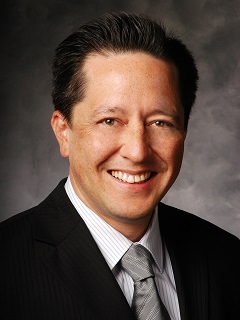Chief Tax Officer Outlook for TMT
Tax teams in technology, media, and telecom (TMT) are transforming with GenAI and optimizing with managed services.

TMT tax groups are accelerating their transformations with GenAI, automation, and new software solutions
Managed services are being used for improved efficiency and compliance
The findings from the fifth annual KPMG Chief Tax Officer Outlook show that in the technology, media, and telecom (TMT) sector, technology transformation is high on the agenda. After trailing other industries in tax technology adoption, this year’s data shows TMT organizations catching up to and, in some instances like using automation and generative artificial intelligence (GenAI), even surpassing other industries. It is also becoming apparent that leveraging managed services in the tax function is a viable avenue for achieving greater efficiency and compliance.
Technology transformation gains momentum
Historically, especially in the technology sector, budget dollars have been funneled more to engineering and research and development as opposed to implementing new technology solutions in infrastructure functions like tax. However, the longer that resources are withheld from the tax function, the greater the risk becomes for inefficient tax planning and noncompliance against increasingly complex global tax rules such as BEPS 2.0: Pillar Two.
The good news is that this year’s survey data now shows TMT closing the gap with other industries in terms of using technology to transform the tax function, and in some cases surpassing them:
- Tax functions that use technology to free up tax professionals for strategic activities:
- 2023: TMT 28 percent, all industries 32 percent
- 2024: TMT 39 percent, all industries 41 percent
- Implementing tax software solutions: TMT 45 percent, all industries 44 percent
- Automating tax compliance solutions: TMT 42 percent, all industries 37 percent
- Deploying/exploring using GenAI in tax: TMT 76 percent, all industries 55 percent
And over the next three years, 53 percent of TMT companies project they will adopt new technology/software to respond to the evolving tax landscape. Across all industries, this expectation sits at only 41 percent.
The key takeaway for TMT companies is to move forward now with tax technology, especially GenAI for tax, because tech adoption is gaining momentum with peer companies. In today’s business environment, it’s imperative that every function does their part to help the enterprise become more efficient, accurate, and productive.
Managed Services help TMT companies achieve their target operating model
Tax Managed Services, also referred to as outsourcing or co-sourcing, represents a scalable, fully integrated tax operating model that unlocks access to new technology while reducing costs and risks. It also provides a governance framework that helps ensure companies maintain full visibility and oversight. The Managed Services model also addresses the two most significant challenges TMT tax groups face in the current US and international tax landscape:
- Keeping up with complex and evolving domestic legislation and regulations (cited by 61 percent of TMT survey respondents)
- Managing compliance in multiple jurisdictions (cited by 45 percent).
Just as implementing new tax technology/software solutions frees up tax professionals for strategic activities, the survey revealed the main outsourcing/co-sourcing benefit identified by TMT leaders (cited by 55 percent) was improved managerial focus on higher value-added issues.
You can read case studies about how industry leaders like HP, Inc. and Uber have leveraged Managed Services to optimize their tax efficiency and compliance effectiveness.
The key takeaway for TMT companies is that Managed Services is an increasingly viable option for companies to reduce costs and risk, stay current with technological advances, and achieve their target operating model.
Key insights from TMT Chief Tax Officers
76%
are deploying or exploring using GenAI in tax
45%
are implementing tax software solutions
42%
are automating tax compliance systems
#1
challenge is evolving legislation and regulation
#2
challenge is managing compliance in many jurisdictions
See more insights from TMT Chief Tax Officers
Tax meets tech to meet tomorrow
With change all around, tax transformation steps forward
Download PDFStay ahead
Subscribe to Technology, Media & Telecommunications insights
Receive valuable insights on the Technology, Media & Telecommunications sector
Explore more
2024 Chief Tax Officer Outlook
The fifth annual CTO survey examines the challenges and opportunities facing tax functions today and tomorrow.
Read moreMeet our team


